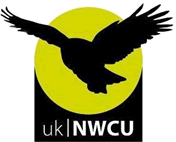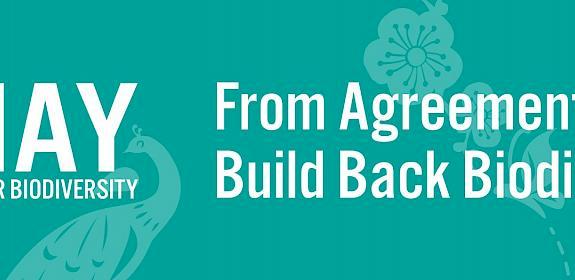Government failure to support wildlife crime stoppers
UK, 18th March 2013 - As part of the response to the Environmental Audit Committee (EAC) the UK government has announced it will not commit to long-term financial support for the National Wildlife Crime Unit (NWCU) beyond 2013-14. This team plays a vital role in preventing wildlife crime here in the UK, and is also a contributor in the global fight against the illegal wildlife trade.

Commenting, Heather Sohl, species expert for WWF-UK said: "This is highly disappointing news, especially after the UK has fought hard towards an end to international wildlife trafficking at the CITES meeting over the last two weeks.[1] When the world is recognising illegal wildlife trade as a serious crime and looking for government commitments to end the trade, the UK should be stepping up its efforts to address these crimes within our own borders. The recommendations of the Committee are reasonable and would have achieved this, but the government is avoiding a long-term commitment to tackling wildlife crime."
The Government also rejected recommendations to tighten up the recording of wildlife crime data to help keep track and tackle trends in wildlife crime. Stephanie Pendry, Enforcement Programme Leader at TRAFFIC, who has worked as part of the unit, said: "I have witnessed first-hand the vital role that this unit plays. In the case of illegal wildlife trade, culprits are often part of wider criminal networks that operate across borders, and cracking down on such trade takes time and joint effort. It is precisely this time that the Unit have not been afforded by the Government, which is a real shame and will have a knock-on effect on operations to protect wildlife."
WWF and TRAFFIC gave evidence to the Environmental Audit Committee (EAC) early last year and this was reflected in the October 2012 report on wildlife crime in the UK. It suggested that enforcement of wildlife crime in the UK is suffering due to the short term availability of funds, a lack of proper training and guidance over prosecutions, and unnecessarily complex legislation.[2]
UK prosecutors and judiciary must be aware of the serious nature of these crimes and how to handle them appropriately. Available penalties are not applied rigorously enough to reflect the nature of illegal wildlife trade crimes, so fail to act as a strong deterrent for future offences. Specialist wildlife crime training for generalist prosecutors and sentencing guidelines for the judiciary are needed.
The creation of specific wildlife crime codes have been rejected by the Home Office, but without the ability to record wildlife crime levels it is impossible to show the impact of such crime, and what trends are occurring, both over time and regionally. It is hard to justify more resources when it is not possible to demonstrate the true size and trends of the problem. If codes are not the answer, WWF and TRAFFIC urge the government to demonstrate an appropriate, alternative way to capture the information on crimes so desperately needed using existing systems.
Many of the EAC recommendations are also reflected in their inquiry from 2004. WWF and TRAFFIC strongly urge the Government to reconsider how it can take appropriate actions to address wildlife crime.
Notes to editors:
[1] CITES is the Convention on International Trade in Endangered Species of Wild Fauna and Flora. The 16th meeting of the Conference of the Parties (CoP) took place in Bangkok, Thailand between 3 and 14 March 2013. www.cites.org
[2] The Environmental Audit Committee conducted an inquiry into Wildlife Crime in the summer of 2012 and published its report in October. http://www.publications.parliament.uk/pa/cm201213/cmselect/cmenvaud/140/14 002.htm
[3] In February 2-13 the government announced one further year of funding for the unit until April 2014 - at the same level of funding as 2012-13 - but it did not comment on its intentions to make a long-term arrangement for funding the Unit, as recommended by the Environmental Audit Committee.



